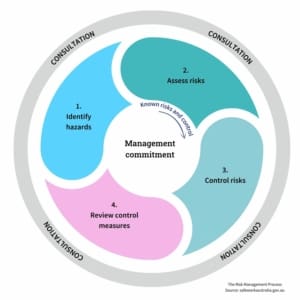Need help getting started?
Insync can help design a robust listening strategy to identify risks in your workplace. Contact our friendly team to get started.
Benchmarking board performance: 500 board reviews later
Unlock evidence-based insights into board performance

From April 1, 2023, Australia made amendments to its Work Health and Safety (WHS) laws that introduced regulations specifically addressing the management of psychosocial risks and hazards within the workplace. Organisations are now legally bound to proactively manage and mitigate the risks associated with psychosocial hazards.
Organisations need to understand what psychosocial hazards are, and how to best respond to these new laws, whilst continuing to create a healthy and sustainable organisation.
Psychosocial hazards are important to address and manage to promote a healthy and supportive work environment.


Please Note: It is advisable to refer to the relevant legislation and resources specific to your jurisdiction and circumstances to ensure compliance.
Erika is passionate about helping organisations improve their performance and effectiveness by understanding the drivers of employee experience.
Erika has a Doctorate in Organisation and Industrial Psychology (Uni Melb) and is a registered psychologist. She is an expert in both quantitative and qualitative evidence-based methodologies. She combines these with vast consulting and leadership experience to provide insights and value to our clients.
Erika’s specialities include employee engagement/experience, alignment strategies, retention strategies, leadership, and team effectiveness. Erika’s particular passions are Finance and Insurance, Professional Services, and Industrials.
Insync can help design a robust listening strategy to identify risks in your workplace. Contact our friendly team to get started.
Unlock the power of employee feedback with strategic action planning. Learn to leverage voices, identify areas for improvement, and maximise buy-in with our ...
Discover the invaluable tips driving Cenitex's employee engagement and transformative enhancements in our latest case study.
Join the BoardPro Webinar, where Nicholas Barnett will discuss the crucial role of the Board Skills Matrix in the director selection process.
Explore the nuances of redeveloping or reviewing your Local Government Community Vision. Find clarity and guidance here.
We use cookies to enhance your experience. Further use is considered consent. You can read more about cookies in our Privacy Policy.


You’ll always get a real person when you contact Insync.
Let's get started